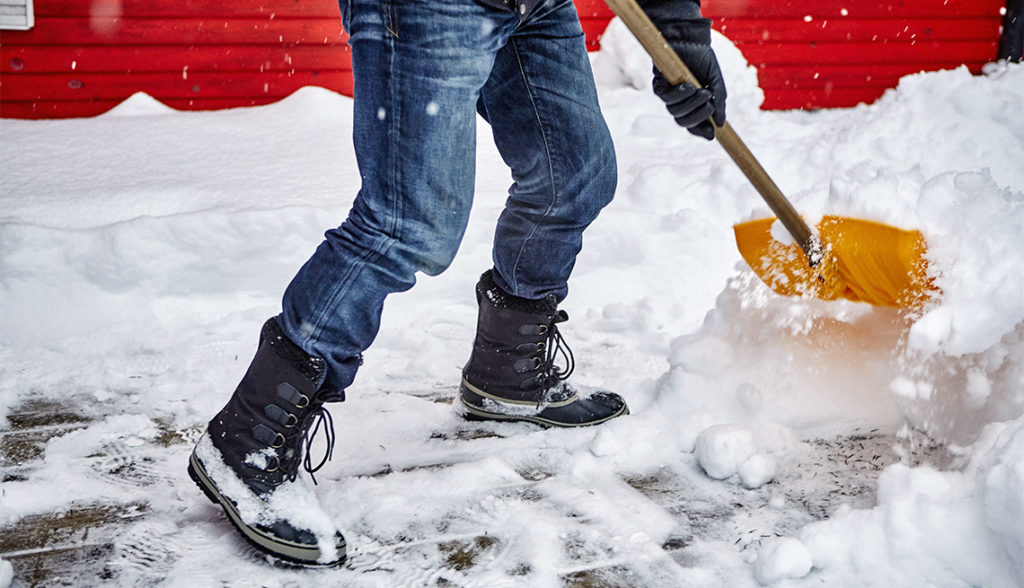When it comes to road salt, a little can go a long way!

The overuse of road salt is damaging to our infrastructure, automobiles, vegetation, water quality and the environment, which is why it was added to the Canadian Environmental Protection Act’s Priority Substances List in 1995. Since this time, municipalities have been investigating ways to maintain public safety while reducing the amount of road salt used.
But it’s not just municipalities that need to curb their salt use. Smart About Salt, a non-profit organization developed in partnership with the Region of Waterloo, estimates that snow removal contractors and the general public use 10-40 times more salt than needed, every gram of which enters our lakes and rivers, harming wildlife and impacting our drinking water.
The District of Muskoka has taken a lead in efforts to reduce the amount of road salt used in Muskoka with the establishment of the Muskoka Road Salt Working Group, composed of representatives from the District of Muskoka and Area Municipalities, Fowlers Construction, the Ontario Ministry of Transportation, the Ontario Ministry of the Environment, Conservation and Parks, the Muskoka Watershed Council, Friend of the Muskoka Watershed, and Landscape Ontario. The goal of this group is to investigate ways of reducing both the private and public use of road salt in Muskoka while maintaining public safety.
Sharing the resources developed by Smart About Salt (SAS) is one component of the Working Group’s efforts. Contractors can become SAS certified through a training program that educates on best practises to reduce salt use while maintaining service quality. Benefits from certification include reduced costs due to reduced salt application, strengthened due-diligence liability defence against lawsuits, protecting the environment, and reduced road salt infrastructure damage on client’s property.
Earlier this year, the District held a SAS certification training session for district and area municipal employees, followed more recently by a public awareness event organized with the Muskoka Watershed Council titled “Road Salt and You”, where participants learned a number of tips and tricks that they can use to reduce their winter salt use, whether it’s at home on walkways and driveways, or in the community on sidewalks and in parking lots.
So what are some of the best ways to reduce your salt use while maintaining safety?
Keeping your driveway and sidewalk clear of ice and snow:
- Shovel first to remove as much snow and ice before applying salt.
- A little salt goes a long way. You only need to spread about a tablespoon or two of salt for a one-meter square area – the size of a sidewalk slab. Use a smaller grain-size, evenly spread on icy areas only, and give it time to work before clearing.
Protect yourself from slips and falls and increase road safety:
- Wear proper winter footwear designed for snow and ice.
- Add removable ice spikes to your boots for walking outdoors in icy conditions.
- Use a traction aid like sand or kitty litter on your walkway to increase traction.
- Having snow tires on your vehicle and driving at a slower speed will increase traction, lower your chances of winter accidents, and save you money through lower insurance premiums.
Prevent future icy buildups:
- Redirect your downspouts away from walkways and driveways.
- Shovel and pile your snow to lower areas or onto lawns to direct melting snow away from paved areas.
- Only use road salt when conditions are appropriate; road salt does not work when the temperature is below -10 °C.
Avoiding the use of salt on your property whenever possible and using the minimum amount of salt when necessary combined with the tips above will help us reverse the increasing concentrations of salts in our waterways, which will be good news for our wildlife, our infrastructure, and our health. Stay tuned for more ways you can help from the Muskoka Watershed Council and the Muskoka Road Salt Working Group.
It’s time to go on a LOW (road) SALT DIET
